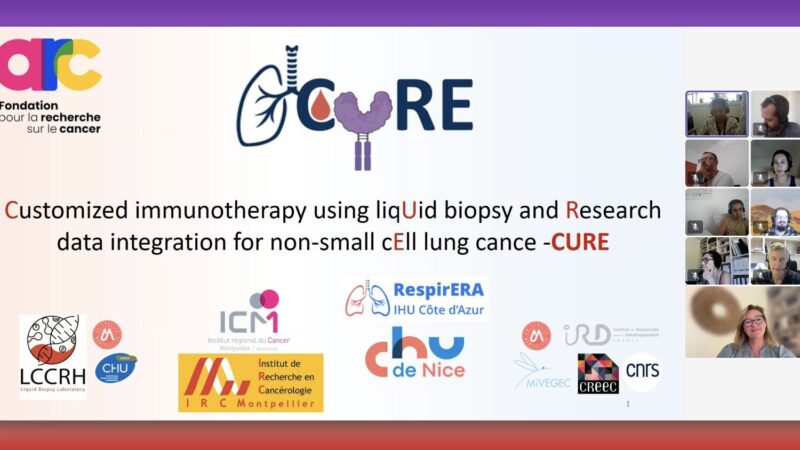Catherine Alix-Panabières, Director of the Human Rare Circulating Cells Laboratory (LCCRH) and University Professor at the University Hospital of Montpellier, shared a post on LinkedIn:
“Today marked the kickoff meeting of our national project CURE, a SIGN’IT initiative proudly supported by ARC Foundation for Cancer Research, which I have the privilege of coordinating.
I would like to warmly thank all the key partners involved—your expertise and commitment will be instrumental in driving this project forward:
Keerthi Kurma, Zahra Eslami-S, Sandrine Tury, Caroline Mollevi, Antoine Dujon, quentin thomas, Xavier Quantin, William Jacot, Gérald Lossaint, PhD, Paul Hofman, Marius Ilié
CURE focuses on the intersection of Liquid Biopsy and ImmunoOncology in Non Small Cell Lung Cancer, two cutting-edge fields that hold great promise for advancing personalized cancer care.
‘Lung cancer is one of the leading causes of cancer-related deaths worldwide, with millions of new cases each year.
Although treatments have improved, they are not effective for all patients. Choosing the right treatment is challenging, as it often requires painful and complex biopsies—especially in the lungs.
In recent years, immunotherapy has shown great promise in prolonging the lives of patients with lung cancer. However, determining the most effective treatment for each individual patient remains a major challenge.
This is where liquid biopsy comes in: instead of relying on invasive procedures, a simple blood draw can provide physicians with crucial information about the tumor.
The objective of our CURE project is to use a blood test to detect circulating biomarkers through various innovative technologies.
By leveraging Artificial Intelligence, we aim to identify a predictive signature that will help distinguish lung cancer patients who are likely to respond to immunotherapy—from those who are not—both before and during treatment.'”

More posts featuring Catherine Alix-Panabières.


